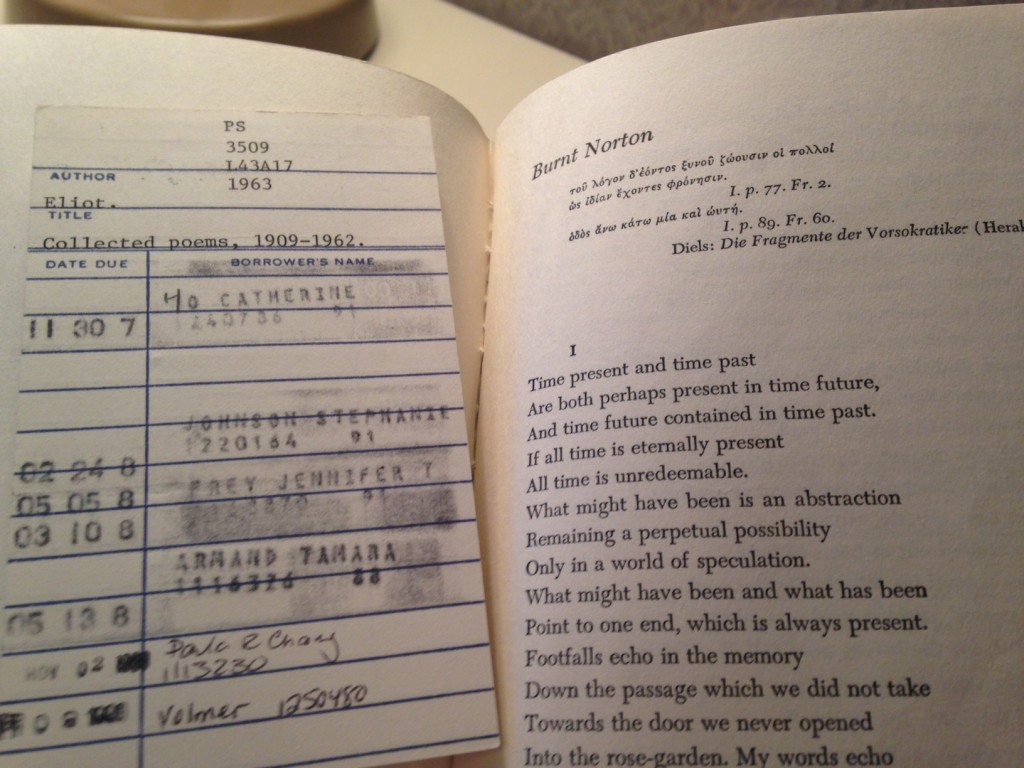Part of ARTsee’s recurring features includes “musings on the art-inflected life.” With the Composers’ Conference concluded and the burst of first-years expected in Orientation (just a few short weeks away!), the weather unexpectedly balmy and quiet, it seems like the right time to muse.
Poetry has been intertwined with Wellesley’s intellectual life since the college’s beginning. In the histories of Wellesley, I’ve read that Henry Fowle Durant invited Longfellow to read on campus; Matthew Arnold, the great Victorian poet and critic, apparently once lectured to Annie Jump Cannon’s class. More recently, poet laureate Robert Pinsky taught in the English department for several years and the award-winning Frank Bidart teaches each semester.
It was in a seminar with Bidart that I first read T.S. Eliot’s Four Quartets. Before I read the Quartets, I associated Eliot with the Wasteland — the first World War, disambiguation, breakdown. I wasn’t prepared for the dazzling, redemptive synthesis — the consideration of life and time and what it means to be shaped by those intertwining forces. The poems engage me in a reading experience that is part out-of-body, part vertigo, part Doctor Who in its finest abstract style.
Knowing these poems doesn’t make a difference in which shoes I wear in the morning, or which route I take to campus. But they do transform — bit by bit, line by line, moment by moment — the way I experience time, and appreciate its passing, even as time passes quietly and slowly during this intermezzo between semesters.
Time present and time past
Are both perhaps present in time future,
And time future contained in time past.
If all time is eternally present
All time is unredeemable.
What might have been is an abstraction
Remaining a perpetual possibility
Only in a world of speculation.
What might have been and what has been
Point to one end, which is always present.
Footfalls echo in the memory
Down the passage which we did not take
Towards the door we never opened
Into the rose-garden. My words echo
Thus, in your mind.
– T.S. Eliot, Burnt Norton


 '
'
One Response to T.S. Eliot in Summertime